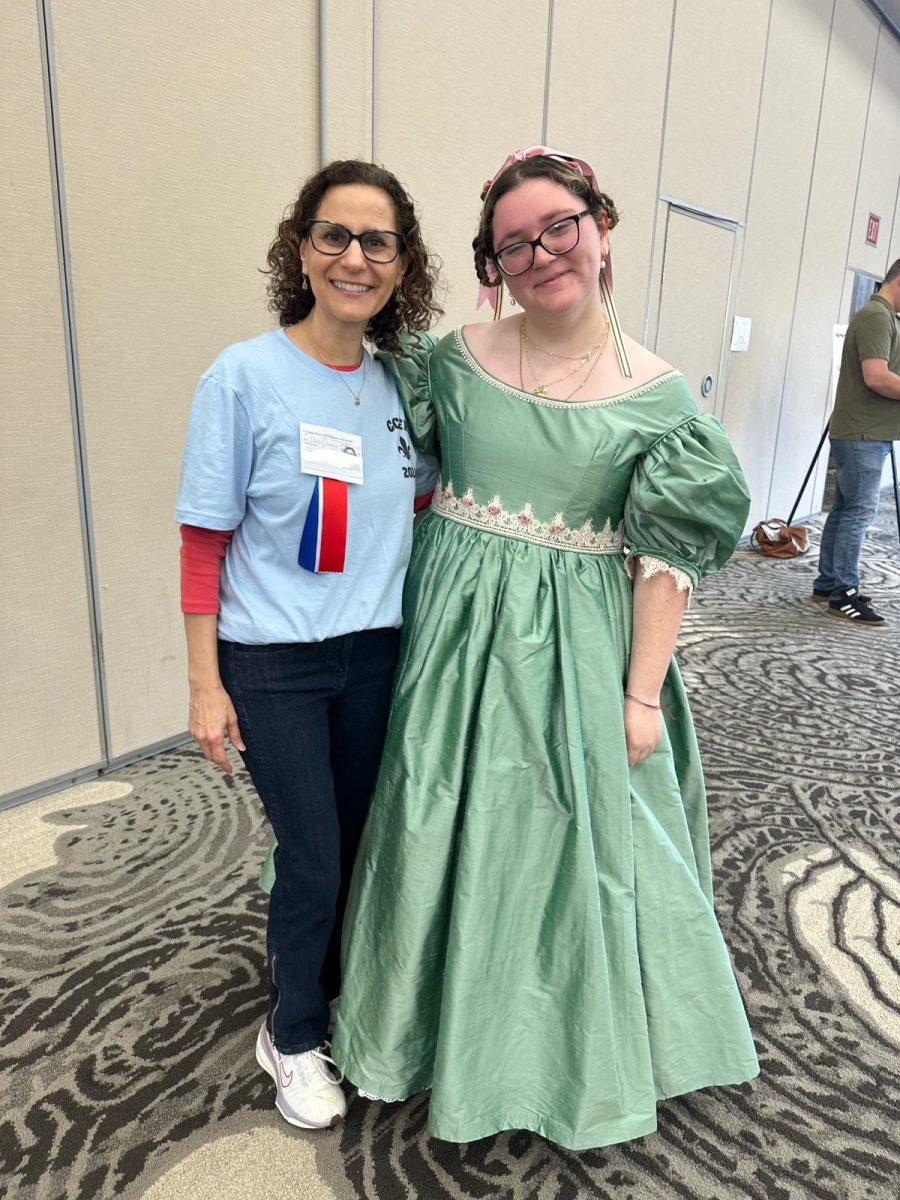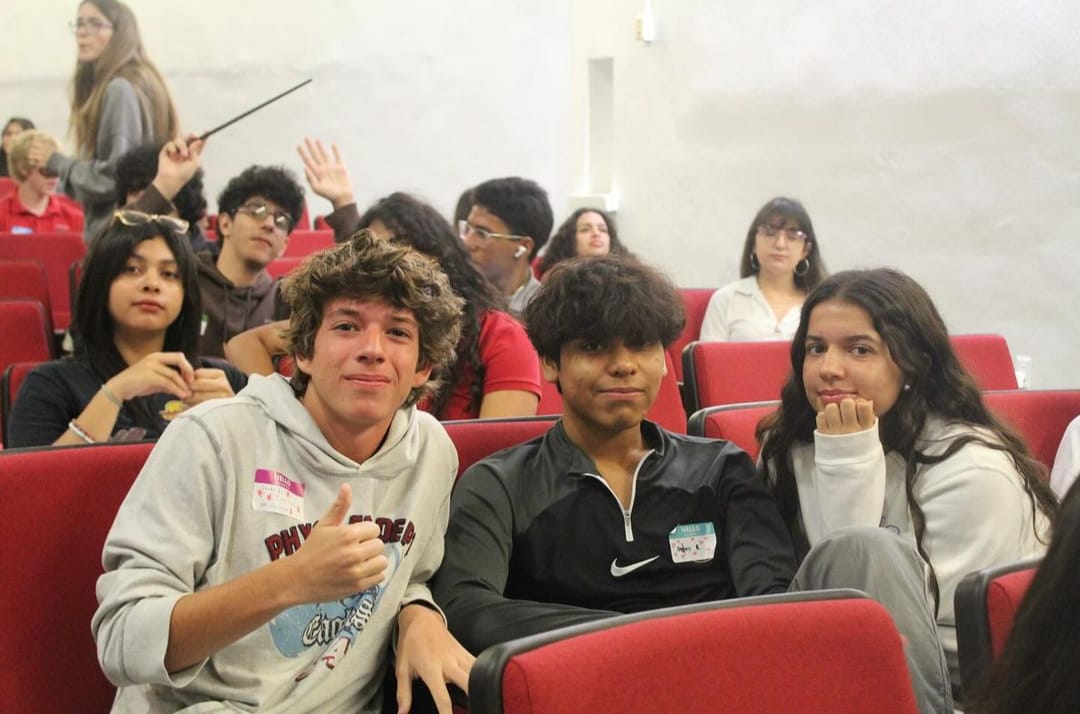Director: Emerald Fennell
Release Date: Nov. 17, 2023
MPAA Rating: R
Starring: Barry Keoghan (Oliver Quick), Jacob Elordi (Felix Catton), Rosamund Pike (Elspeth Catton), Richard E. Grant (Sir James Catton), Archie Madekwe (Farleigh Start) and more
Our rating: B+
“Saltburn” tells the story of Oliver Quick, a struggling but dedicated university student and his efforts to make friends. Taking place in 2006, the film uses a nostalgic feel for the reality of Quick’s situation: one of solidarity and turbulence.
The movie begins with a testimony from Quick himself, hiding the listener of said conversation from the viewer. The protagonist’s first few encounters with Felix Catton inform the viewer on the former’s life story, telling his parent’s issues with substance abuse and his own trauma resulting from it.
The slowburn development of “Saltburn” went hand in hand with the name of the film itself, an intricately thought-out plot that at first-watch may feel dragged out, but upon conclusion condenses perfectly as one. The first parts of the film that take place at Oxford University build up the desperation of Quick’s nature, painting him as a feeble and unlucky person.
After the alleged death of Quick’s father, Catton invites him to Saltburn, to spend the summer at his family’s estate. Once there, the protagonist sees himself surrounded by the opulence and invasiveness of the Catton family, who both pity and critique Quick. The worry in the audience is then focused on Quick, many posing the question of what the Cattons will end up doing to him.
It is this exact impeding question that pairs strongly alongside Quick’s innocent self to bring about a sudden, but smart twist. During his stay, Catton brings Quick for a car ride, with the location being kept a secret from Catton’s visitor.
“It was a good build-up. At the beginning, I viewed Oliver [Quick] as innocent, because that is what he comes off as. The progression of how psychotic he is and his obsession with the family- and being in it- was very strong. Some of those scenes were necessary to show how extensive his obsession was, but others really were not,” sophomore Gabriella Arango said.
Upon opening his childhood house’s door, it was made evident that Quick’s mother was not a drug addict, and that even more surprisingly, his father was indeed alive. Laid out for the viewers is the definite fact that Quick is a liar, with the tear in trust between him and Catton also being a major aspect of tension between Quick and the royal family.
This newly presented instability causes a momentary stress, as it is unclear how Quick’s friend will respond to this dishonesty. The viewer finds that the entire integrity of the storyline has crumbled, an unexpected, yet well-presented surprise that breaks trust in all characters.
The following scene of Quick’s birthday party evokes nervousness in the viewer, as the commotion and insecurity of the plot are shown through strobing red lights flooding the screen. However, the directors did well in their inclusion of the animal and fantasy costumes that the rich invitees wore, painting them as uncivil, an ironic jab at the high class and their wild tendencies. The film is clearly skewed to display the isolation of the rich and their resulting ethnocentrism, a trait that is artistically encapsulated when they fail to sing Quick a happy birthday.
Eventually, with a bottle in hand and an intensity to his walk, Quick finds his way away from the party to the center of the estate’s maze, obsessively interrupting Catton and a girl, a confrontational mood playing out. As the scene unfolds, it is almost underwhelming in its conclusion, for the previous ominous build-up leads viewers to believe a harsh confrontation would blow over into immediate consequences.
“I think the directors made really cool, and at some times, strange choices in how they conveyed their characters. I didn’t feel very emotional when watching it, and I feel that that was kind of a failure of the movie. It has a deep message, but you fail to get emotionally involved in the lives of its characters. By the end of it, you just feel shock,” sophomore Hazel Grossel said.
The next morning, a rapid search for Catton is broken up into unclear shots, reflective of the desperation of the worried family members and friends.The discovery of the Catton son’s body in the center of the maze is captured in a shot that frames only the anguished reactions taking place in various parts of the screen. The mastery in this is the fact that it stands as an ode to the eventual fragmentation and increased hysteria of Saltburn’s inhabitants.
As the red light of the closed curtains paints over the family’s panicking faces, the sister in distress cracks, downing red wine in anxiousness. Here, “Saltburn” highlights both the economic and emotional gap between the two young adult’s families. With all of their wealth, the family cannot escape the undeniable grief that Catton’s murder brings upon them, while Quick remains suspiciously composed.
“I liked how the beginning of the movie involved a little bit of foreshadowing that initially made no sense but towards the end, all the dots connected. For the murders, I felt that they were also anticipated. Just like how Venetia died in the bathtub, which was full of blood, and the scene before had a red screen from the curtains, a sort of symbol for the blood,” sophomore Sofia Abril said.
The biggest jump in “Saltburn“ takes place when the movie skips to an older, more mature version of Quick in a coffee shop, reading Sir James Catton’s obituary. He then encounters Elspeth Catton in an all-too-perfect run-in and forges a newfound, strong relation with her. The gap of information between the father’s death and the coincidental encounter with the Catton mother was clearly filled in a time-crunch, which only reflects badly on the directors.
“The characters were very complex, but I think that they were each unique in their own way. You did not know what they were thinking or how they would act. I loved the cinematography, especially the color scheme and the certain angles they used, it was very detailed. I liked that in the end, it all connected,” sophomore Lucia Astorga said.
In an extensive look to the past, viewers are then grasped by the montage of Quick’s secret doings, highlighting small concealed moments that led him closer to Catton. The end goal of Quick’s thorough plan and measures was rather unclear, as at first, it was initially to find new friends.
In discovering that Quick was the one responsible for poisoning Catton and assisting in Venetia’s death, another critical piece of the plot was brought to light. The encounter with Elspeth Catton and the two’s growing involvement brought the audience a painfully long ending scene of the only remaining royal in a hospital bed. The film then ends as Quick rips out the mother’s life support, purging Saltburn of the last of the clan to enjoy their wealth by himself, his ultimate motive.
Since its release in the end of 2023, “Saltburn” has taken over the internet, and for good reason. Though the film was categorized by some extremely biased characteristics and intricate scenes, it is this distasteful atmosphere that cleverly distracts from what “Saltburn” is: an imaginative, yet confounding performance.















